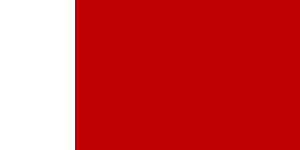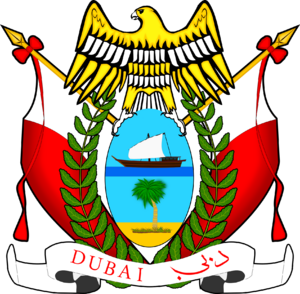Dubai (emirate) facts for kids
Dubai (Arabic: دبيّ) is one of the seven emirates that make up the United Arab Emirates (UAE). It's a very important place! The main city in this emirate is also called Dubai. Sometimes people say "Dubai City" to make sure you know they mean the city, not the whole emirate.
Dubai is the second largest emirate in the UAE, right after Abu Dhabi. It's located on the Persian Gulf, which is a big body of water. You can find it southwest of Sharjah and northeast of Abu Dhabi. There's also a small part of Dubai called Hatta, which is separate from the main area. It's close to Oman.
Dubai's economy is quite special compared to other parts of the UAE. It doesn't rely much on oil money. In fact, oil makes up only a tiny part (about 6%) of its total income. This means Dubai has found other ways to grow and become successful!
Contents
A Look Back: Dubai's History
Dubai has a rich history. On January 8, 1820, the leader (called a sheikh) of Dubai signed a special agreement. It was a "General Treaty of Peace" supported by the British.
How Dubai Became Independent
In 1833, a group of people from the Bani Yas tribe, known as the Al Maktoum family, settled by the Dubai creek. From that moment on, Dubai became an independent emirate. It often had friendly competition with the emirate of Abu Dhabi. There was even an attempt by some pirates called the Qawasim to take over Dubai, but it was stopped.
In 1835, Dubai and other nearby states, known as the Trucial States, signed a sea truce with Britain. About 20 years later, they signed a "Perpetual Maritime Truce," which meant peace at sea forever. Dubai then came under the protection of the United Kingdom in 1892. This helped keep other groups, like the Ottoman Turks, away. Dubai was important because it was on the trade route to India, just like its neighbors Abu Dhabi, Ras al-Khaimah, Sharjah, and Umm al-Qaiwain.
Joining the United Arab Emirates
In March 1892, the Trucial States were officially formed. Later, in 1966, the local money (the Gulf Rupee) lost its value. So, Dubai teamed up with Qatar to create a new type of money called the Qatar/Dubai riyal.
Around this time, oil was found about 120 kilometres off Dubai's coast. This discovery led to agreements for oil drilling. However, Dubai's oil supply is much smaller than Abu Dhabi's.
On December 2, 1971, Dubai joined with Abu Dhabi and five other emirates to create the United Arab Emirates. This happened after Britain left the Persian Gulf in 1971. In 1973, Dubai and the other emirates decided to use one single type of money: the UAE dirham.
Dubai Today: A Modern Hub
Today, the money Dubai earns from oil is only a small part of its total income. Dubai and its nearby area, Deira (which used to be separate), became very important stops for Western manufacturers. Many of the city's banks and financial businesses are in this area. Dubai remained a key place for trade throughout the 1970s and 1980s.
Trade and Tourism
The city of Dubai has a free trade system for gold. Until the 1990s, it was a major center for "brisk smuggling trade" of gold ingots to India, where gold imports were limited.
Now, Dubai is a huge place for tourism and a very busy port. Jebel Ali, built in the 1970s, has the biggest man-made harbor in the world! Dubai is also becoming a center for service industries like IT (computers and tech) and finance (money management). The new Dubai International Financial Centre (DIFC) is a great example of this.
Getting around is easy thanks to Emirates Airline. This airline was started by the government in 1985 and is still owned by the state. It's based at Dubai International Airport and flies over 12 million passengers every year!
Special Economic Zones
The government has created special areas called free zones across the city. These zones are designed for specific industries. For example, Dubai Internet City and Dubai Media City are now part of TECOM. These areas are home to big IT companies like EMC Corporation, Oracle, Microsoft, and IBM. You'll also find media groups like MBC, CNN, Reuters, and AP here.
Dubai Marina is a huge project by EMAAR. When it's finished, it will be the largest marina in the world! There's also Dubai Knowledge Village (KV), which is a center for education and training. It helps provide skilled workers for the tech and media companies in the free zones.
Dubai experienced a big boom in property development when they allowed freehold property. This meant people could own land outright, which brought in a lot of money. However, during the global recession, property prices did fall quite a bit.
See also
 In Spanish: Dubái para niños
In Spanish: Dubái para niños
 | Jessica Watkins |
 | Robert Henry Lawrence Jr. |
 | Mae Jemison |
 | Sian Proctor |
 | Guion Bluford |



